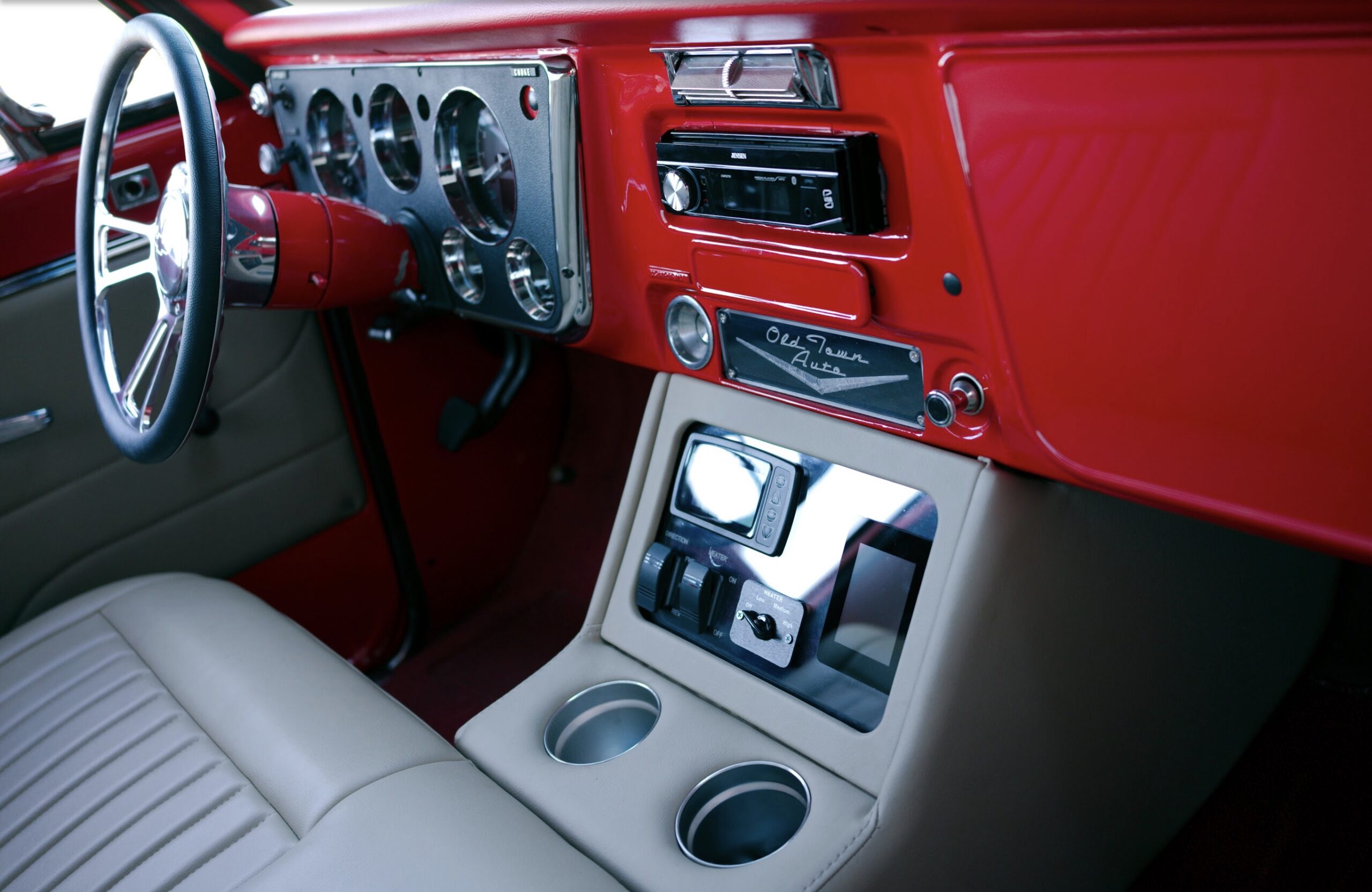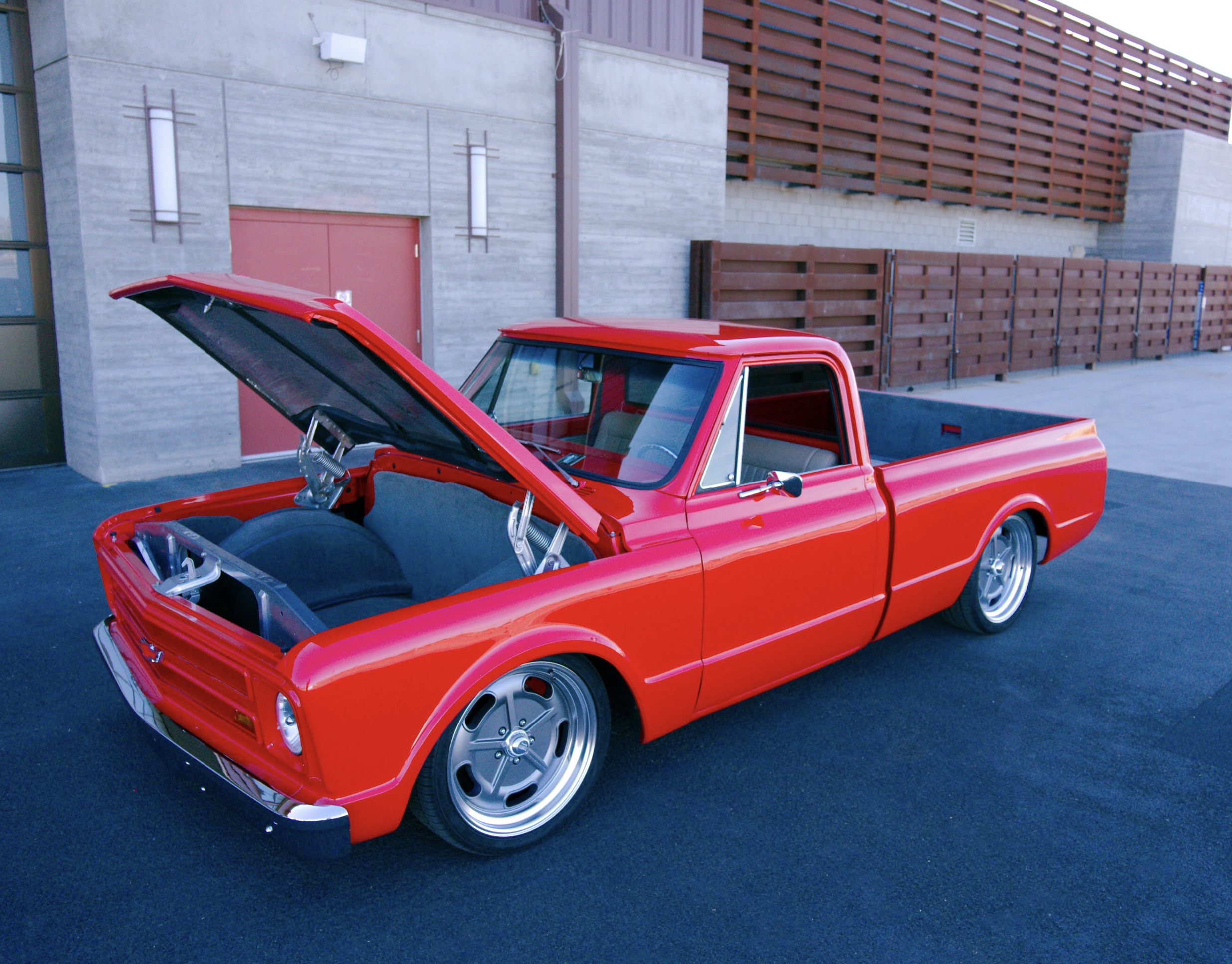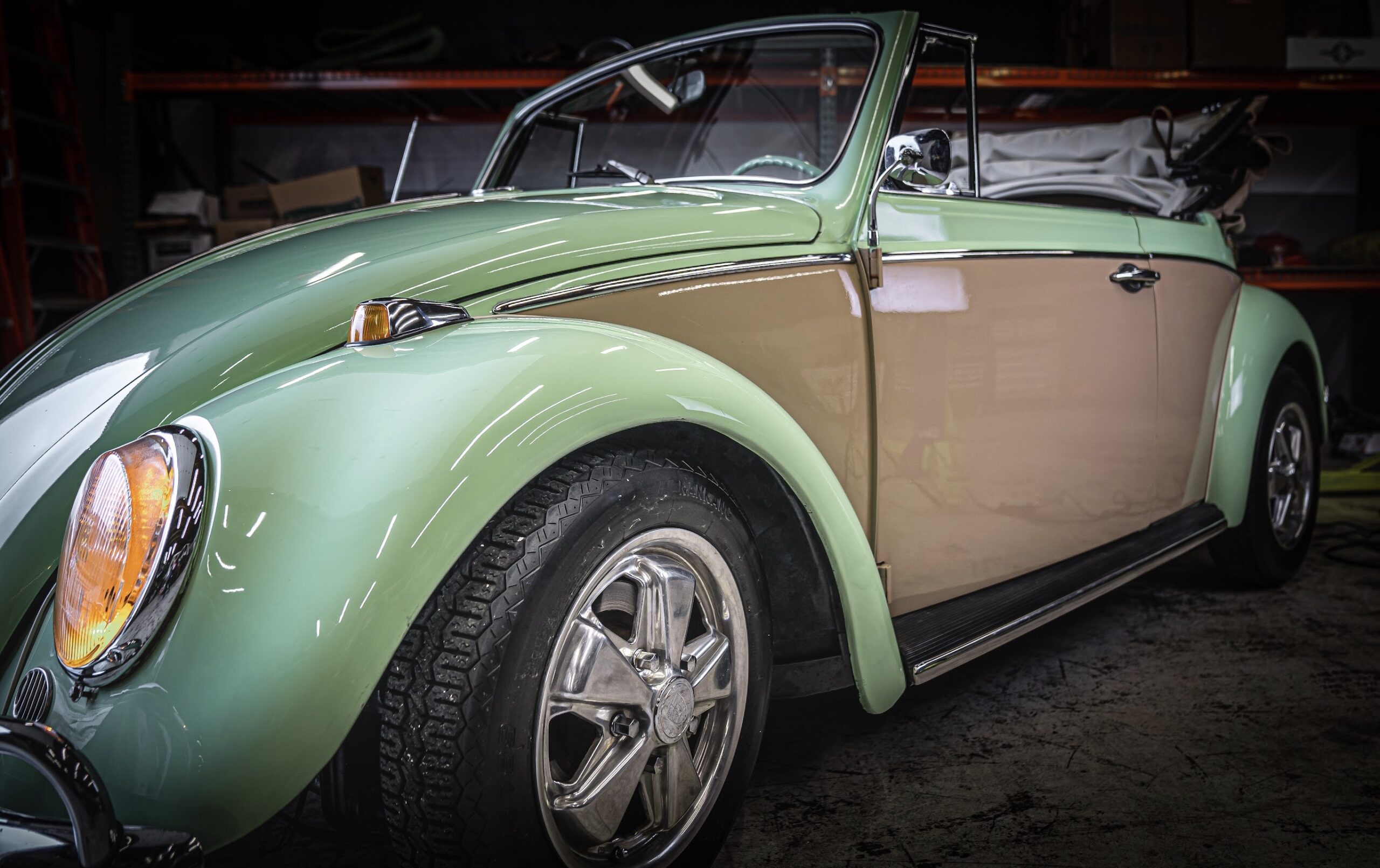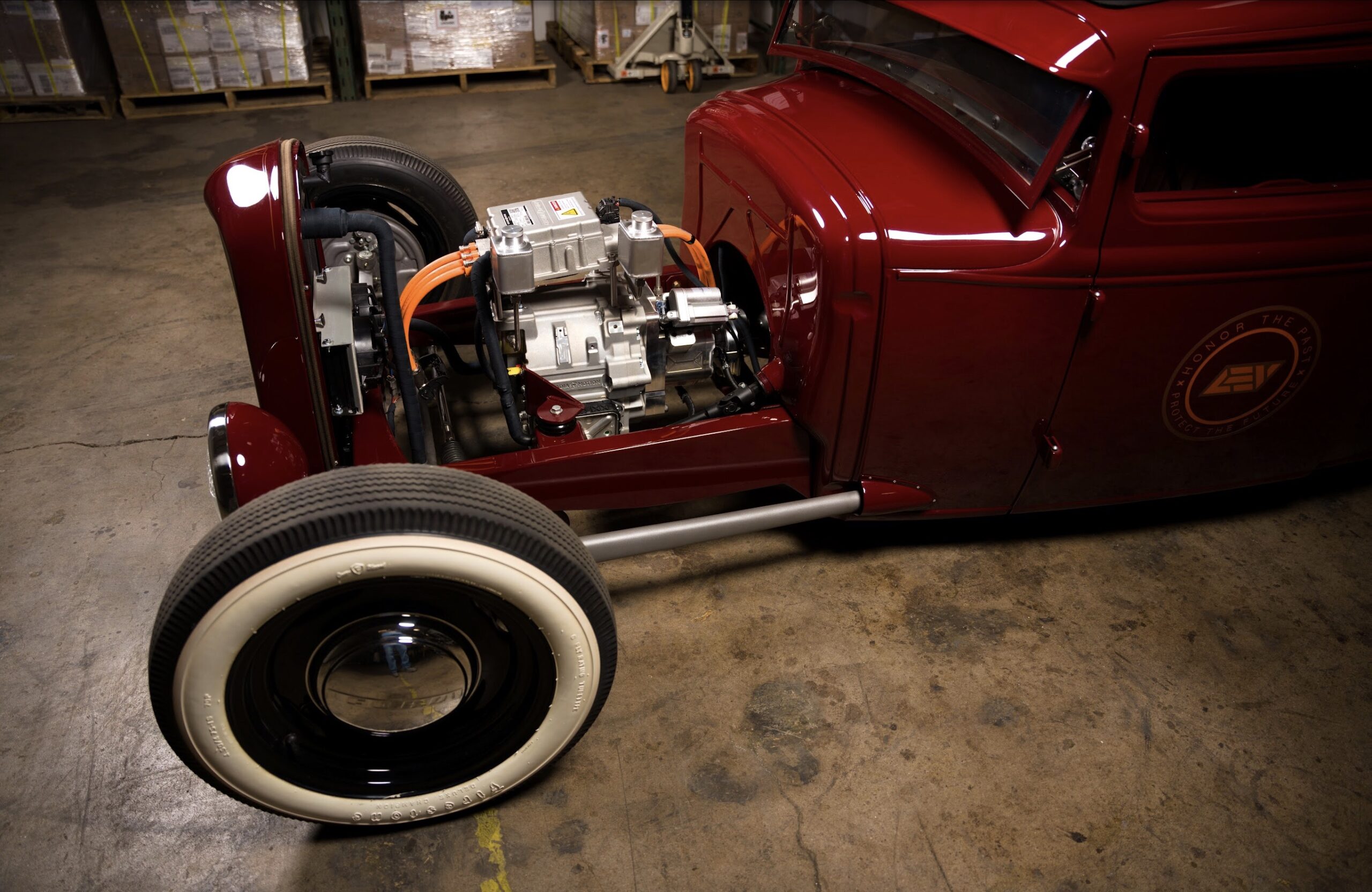By Jordan Gerard
Legacy EV has the “parts and smarts” for electric vehicle conversion. The Tempe-based company was established in 2019 by Rob Ward and Mavrick Knoles. The company is Ward’s brain-child from 2017, which emphasizes the pair’s passion for sustainability and has even grown to include his love of classic cars.
At first, the goal was to be a parts distributor, with the intent to make aftermarket E-mobility parts more accessible. The problem was collecting all the parts at once to build an electric vehicle motor or convert a gas-powered car to an EV.
 Now Legacy EV works with manufacturers to integrate their systems into one cohesive kit that is supplied to builders or fleet owners, providing an easier way to convert vehicles.
Now Legacy EV works with manufacturers to integrate their systems into one cohesive kit that is supplied to builders or fleet owners, providing an easier way to convert vehicles.
“We’re really focused on helping other people build the cars,” Knoles said. “So we are the parts warehouse. We call ourselves the parts and smart – we get other builders the parts that they need to do the conversions themselves.”
The company works with several Valley shops including Vintage Iron and Pauly’s Classic Car Corner. Vintage Iron plans to debut an electric El Camino, while Pauly’s is working on a Chevrolet C-10. Both shops are certified by Legacy EV, who provided the standards training course. Once a shop is authorized, they join Legacy’s authorized installer network. When customers approach Legacy about building a car, one of the shops gets the job.
There’s new enthusiasm for restoring classic cars with electric motors, and classic car enthusiasts who like the sound of a big block engine don’t have to worry too much. Knoles said high-performance classic cars aren’t totally quiet; there’s just a different hum.
“It still is a really fun sound,” he said. “We started saying it’s like listening to an a capella band because you’re just hearing tires screech when somebody’s out there doing really cool performance things in their car. What I’ve grown to really appreciate since starting Legacy is the hum that the different electric motors make. And you can really hear there’s a different type of performance in these different systems, which is really fun.”
Ward has loved classic cars since he was 12 years old. As for Knoles, he drove his first EV in 2014. Electric vehicles in Arizona are allowed to drive in the carpool lane, and Knoles wondered if it was really that efficient to allow the exemption. It was, he discovered. Combining their interests expanded the enthusiasm for electric classic cars, while still honoring their history.
 And whether it’s the classic car or sustainability aspect that draws people in, Legacy EV is certainly propelling the future of electric vehicles forward. Since the company started, the two co-founders have focused largely on education.
And whether it’s the classic car or sustainability aspect that draws people in, Legacy EV is certainly propelling the future of electric vehicles forward. Since the company started, the two co-founders have focused largely on education.
“People really want to learn how to work with these systems safely,” Knoles said. “We’ve really grown our education team to help bring that to light.”
The company’s education team works with colleges and high schools in and outside of the Valley by training instructors first, then giving them the curriculum to teach the courses. Just getting started on the program is the East Valley Institute of Technology. Legacy’s first collegiate partnership was the Carroll Shelby Automotive Program at Northeast Texas Community College. Ward and Knoles would like to expand to 30 more schools next year, he said.
The company also offers its own training course online and in-house. Up to 20 people from anywhere complete five online modules at their own pace, and then come to Tempe for a week-long in-person training program. To date, over 100 people have completed that program, and it continues to be in demand. This month’s session was sold out, and there’s a waiting list for March.
The future of a career in electric vehicles is bright, Knoles said.
“I think right now, we have a lot of mechanics all over the country that are really wondering what their jobs will look like in the next 10-15-20 years,” he remarked. “And I don’t think that the existence of EV technology will mean that they can’t continue to do the work that they’ve been doing. I think it just means we need to up-skill those current mechanics.”
 The next generation hot rodder might look a little bit different than today. Knoles points out that a lot more technicians are sitting in the car on their laptops programming torque curves and setting acceleration maps.
The next generation hot rodder might look a little bit different than today. Knoles points out that a lot more technicians are sitting in the car on their laptops programming torque curves and setting acceleration maps.
“We see a lot of excitement in the younger generation. They’re looking forward to getting to build really cool things with sustainable technology,” he added. “And that is super exciting that you can do it with a tech degree, not necessarily a four-year college degree.”
Just how beneficial is converting gas motors to electric? Knoles gives the example of a school bus. New electric buses are fairly expensive, but also big polluters, especially in the smelting and mining process. A single bus weighs about 13,000 pounds. For every one pound of steel that’s mined, there are nearly two pounds of carbon emitted. That equates to 26,000 pounds of carbon emissions.
However, converting an existing bus from gas to electric saves about six-and-a-half years of emissions and a lot of money. Knoles said it’s under $200,000 to convert, plus about 12 years of savings in operation costs. It’s difficult for school districts to purchase new electric buses because of the cost (about $350,000 to $450,000), and while there are incentives, they often don’t cover enough of the cost.
 The enthusiasm for electric vehicles hasn’t wavered in the classic car realm, nor for newer cars. Classic cars are the more popular candidate because people have improved them as asset-grade vehicles. And while newer vehicles are a little harder to convert, it is by no means impossible. A 2019 Ford F-150 was just converted to electric, Knoles said.
The enthusiasm for electric vehicles hasn’t wavered in the classic car realm, nor for newer cars. Classic cars are the more popular candidate because people have improved them as asset-grade vehicles. And while newer vehicles are a little harder to convert, it is by no means impossible. A 2019 Ford F-150 was just converted to electric, Knoles said.
“We’re seeing people who come from software or tech backgrounds that don’t necessarily want to drive a Tesla,” Knoles explained. “This idea of upcycling their existing vehicle or being able to drive a classic car with a really cool modern powertrain is way more exciting.”





